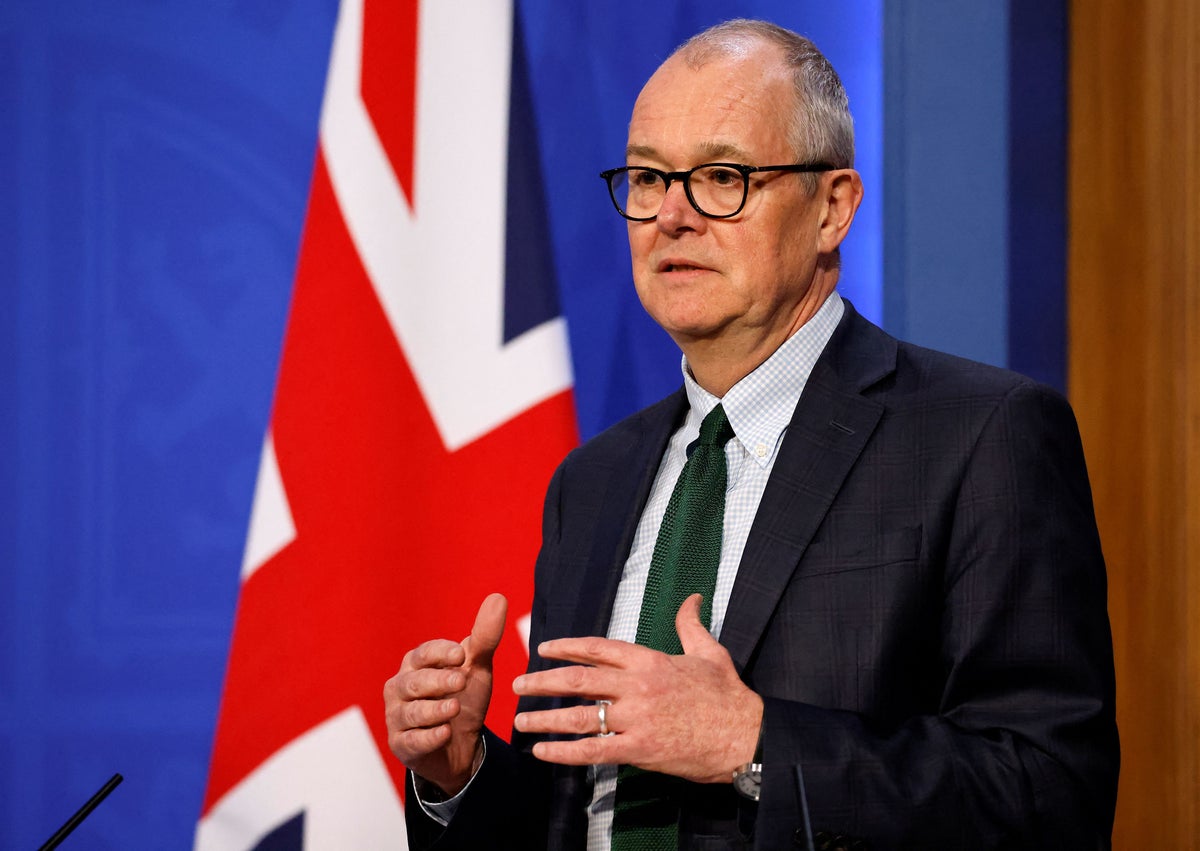
It is “disappointing” that government officials did not adhere to the Covid rules put in place to control the spread of the virus, the government’s chief scientific adviser Sir Patrick Vallance has said.
Sir Patrick, 62, was one of the key scientists who updated the public through televised briefings during the pandemic, sometimes accompanied by prime minister Boris Johnson.
He was speaking after collecting an honour from the Duke of Cambridge at Buckingham Palace for helping to lead the UK’s battle against coronavirus, against the backdrop of an attempt this week by Tory MPs to remove Mr Johnson from office following the scandal over lockdown breaches in Downing Street.
When asked about the Partygate scandal, Sir Patrick said: “It was really important at all stages that everyone stuck to the rules. It worked when people stuck to them. It is disappointing that that wasn’t the case.”
Conservative MPs voted 211 to 148 on Monday in support of Mr Johnson, following a bruising few months in which the prime minister and his government came under scrutiny, not only in relation to the lockdown parties, but also for matters relating to standards in political life and the cost of living crisis.
Sir Patrick said the darkest days of the pandemic had been when there was still “huge uncertainty” about the fast-spreading virus, including when the prime minister himself was hospitalised after contracting it.
He recalled this as a “difficult” time, adding that, while there are likely to be further waves of infection, the nation should now be better placed to deal with the virus.
He said: “The darkest days were in many ways the early days of the pandemic, when obviously lots of people became very ill quite quickly – obviously people in the government fell ill, and the prime minister was very ill, and those were very difficult days.
“It was mostly about the uncertainty. We did not know much about the virus. We did not know much about exactly how it spread.
“We did not know there were going to be vaccines and treatments. We hoped there would be, and we were trying to work on them, but we just did not know. There was huge uncertainty at that time, and that was most difficult.”
Prince William joked with him that it was “second time lucky” as he presented Sir Patrick, who was originally knighted in the 2019 new year honours list, with an upgraded award that makes him a Knight Commander of the Order of the Bath – an honour that recognises the work of senior military officials and civil servants.
Sir Patrick said the most positive time during the pandemic was when the UK became the first place in the world to approve a vaccine.
He said: “It was a real moment where we thought, ‘This is going to be a way out of this,’ even though it was over a year before it was finally a way to getting out of it. It was the thing that changed the course of the pandemic.”
Sir Patrick believes that next winter could be a testing time, but said that the NHS leadership is aware of the potential difficulties it could face and is making preparations.
He said: “We are in a very different position [now] because of the high degree of vaccination and immunity in the population. We will see, I’m afraid, further waves of infection, maybe next winter.”
Sir Patrick believes that an “annual vaccine for people over a certain age” could eventually be introduced, and that the spread of the virus could become “more like a flu wave that we get every winter”.
He added: “It will be difficult, because there will be some people who are really affected by it, but the key to this is proper vaccination and proper management in the health service.
“Then, gradually, over the next two or three years, I think this could settle into a background infection, but we are not quite there yet.”
Sir Patrick praised “the most amazing scientists and experts” who helped to ensure that there was evidence-based commentary during the pandemic at a time when people were dealing with some “horrific” things.
He added: “It has been one of those experiences where you realise the importance of other people, humanity, and the goodwill, hard work, passion and expertise. It is nice to feel trusted and I am grateful for that.
“What I have tried to do, and what others have tried to do, is to make sure we are as honest and straightforward as possible about how we saw the situation at any given moment in the pandemic, and to be as realistic as possible – both in terms of treatments and vaccines coming along, but also on what the course of the pandemic was.”







